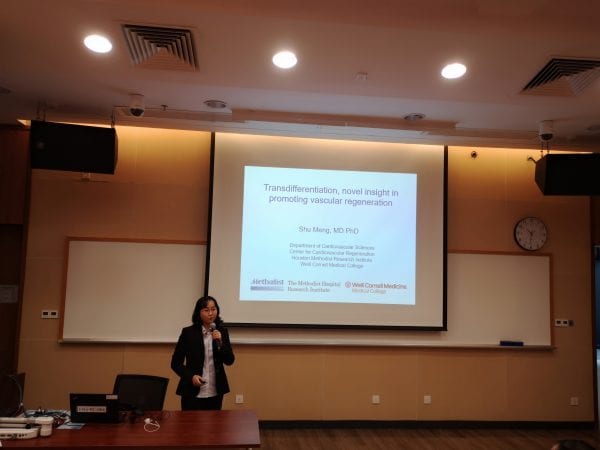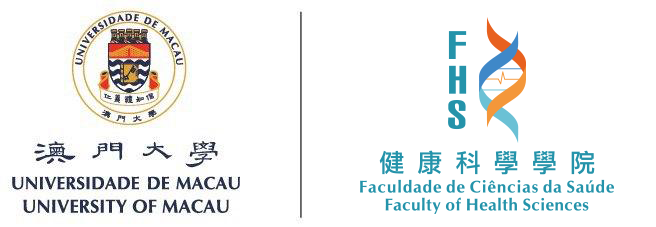
| Talk title | Transdifferentiation, a Novel Mechanism in Vascular Regeneration |
| Speaker | Prof. Shu MENG Research Assistant Professor; Assistant Professor Houston Methodist Research Institute (HMRI), Houston, TX, USA; Weill Cornell Medical College, New York, NY, USA |
| Date & Time | 05 Nov 2019 (Tue) 10:30-11:30 |
| Venue | Room G004, E12 Building (University of Macau) |
| Abstract | The angiogenic response to ischemia restores perfusion so as to preserve tissue structure and function. This complex process is known to involve capillary sprouting, pericyte recruitment, and circulating angiogenic cells in response to angiogenic signals generated by the ischemic tissue. A role for transdifferentiation of fibroblasts to endothelial cells in the angiogenic response is controversial. Using a murine model of hindlimb ischemia, and in vivo matrigel plug assay together with fibroblast lineage tracing studies and single cell RNA-sequencing (sc-RNAseq) to examine the transcriptional and functional changes in fibroblasts in response to ischemia, they have identified a small subset of YFP+ CD144+ CD11b- cells that expressed endothelial cell genes. sc-RNAseq studies uncovered the existence of eight discrete clusters of cells at baseline, of which two clusters also expressed some EC genes. Suppression of inflammatory signaling abolished the generation of YFP+ CD144+ CD11b- cells, impaired perfusion recovery and increased tissue injury after femoral artery ligation. Together, these studies indicate the presence of subpopulations of tissue fibroblasts which seem poised to contribute to the angiogenic response. The expansion of these subpopulations with ischemia is dependent upon activation of innate immune signaling, and contributes to recovery of perfusion and preservation of ischemic tissue. |

